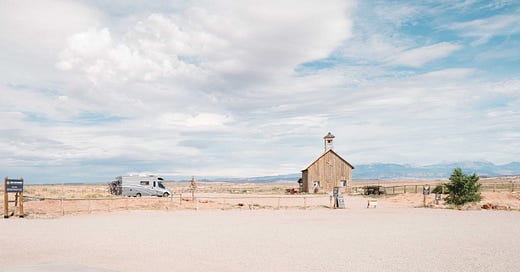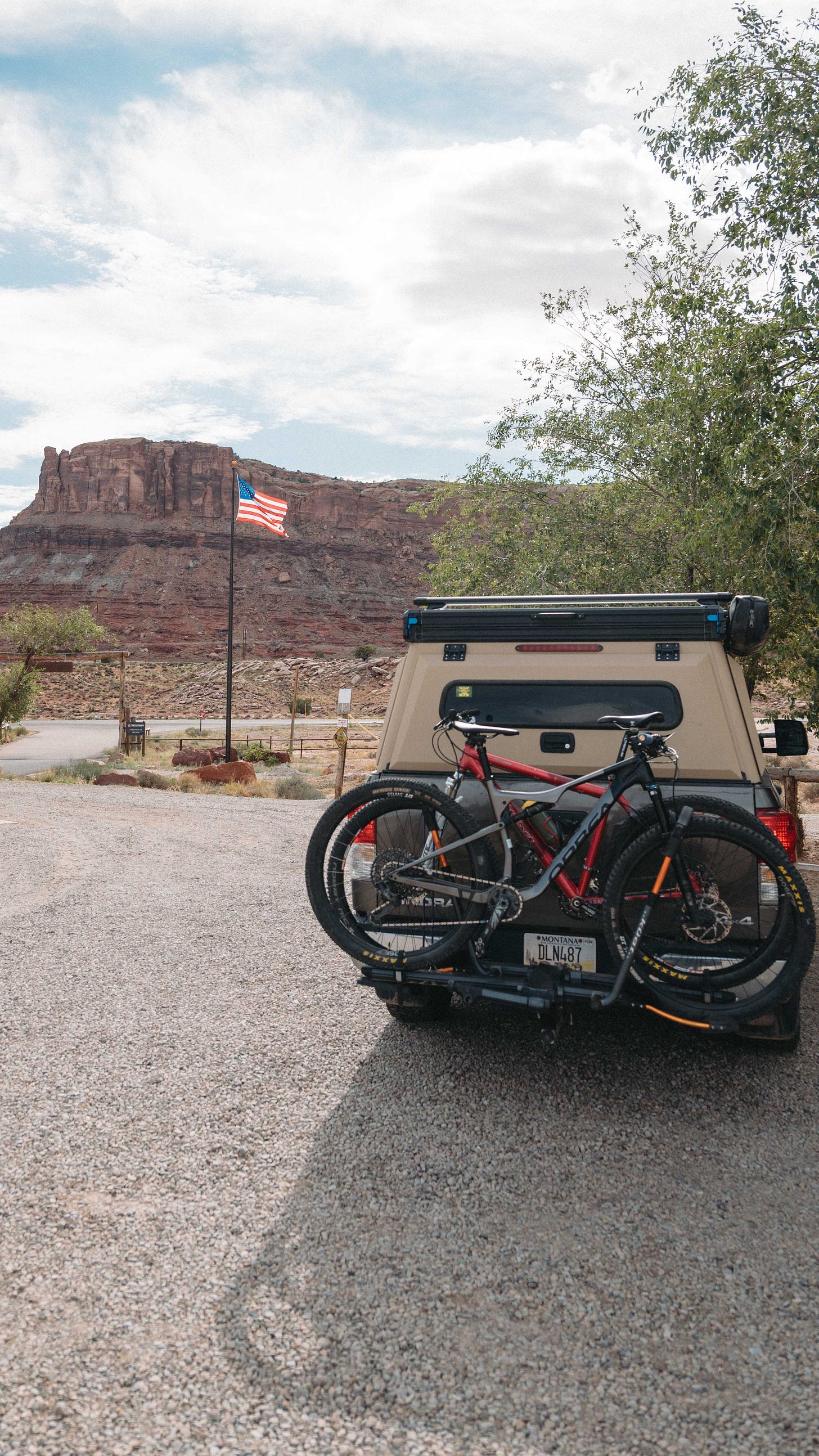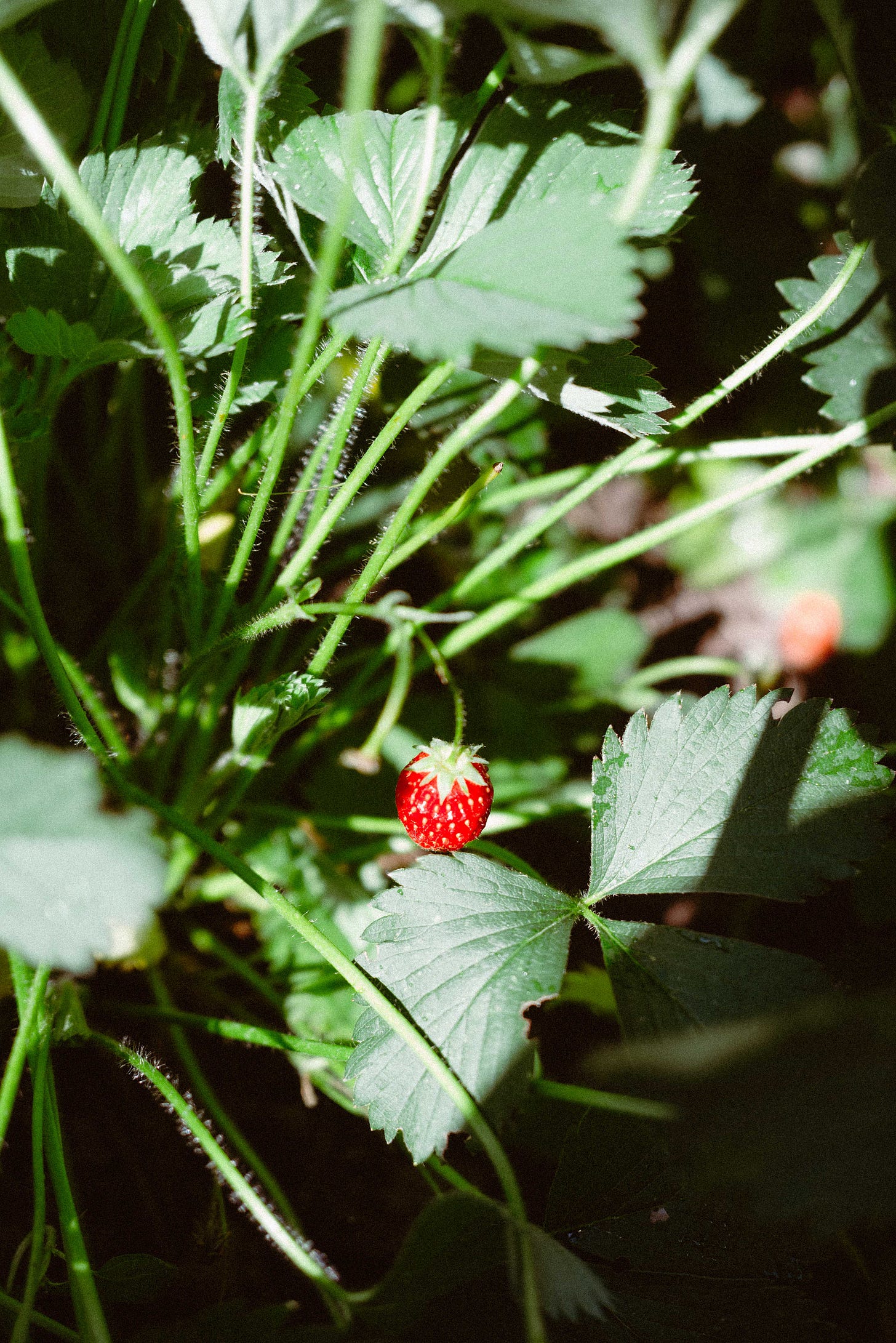It’s Tuesday morning. In this part of Montana the sun is out. The sky is hazy, but not what most people think of for Hazy Montana August… rather this morning haze, glowing beautifully amber in the early light, is caused by… moisture. We’ve had a ton of it this summer. Thinking back to our mostly dry February when in most people’s minds summer fire season was already blazing, I’m reminded of why it is so important to never stress the future… “Prediction is difficult, especially when dealing with the future” as the Danish proverb goes. Here we are, August. Montana. Rain. And of course it could change, and will, but the point is there is no reason to worry of potentially spilled milk four months from now.
We’ve been on the road a lot these last few weeks and thus the break from posting here. I’d fully intended to while on the road, but sometimes it’s best to put down expectations and go with the flow. I enjoyed some podcasts. Some books. Not looking at my phone. A lot of silence staring across landscapes. Not working on anything at all. And while writing rarely feels like work in the drudgery sense, I did sense a need to take a break from most forms of it other than my journal as I’m about to dive into a new story in the next two weeks and I’ve wanted to approach it with a completely blank slate. As I write this I see it’s completely counterintuitive but it was also a matter of time and focus.
We loaded our pickup truck last week and drove our daughter down to Colorado for her second year of college and spent the week with one of my brother’s and his wife. Slow mornings talking about mountain weather and kids, coffee on the porch in the Colorado sunshine, and afternoon hikes in the mountains watching as storms surge in cells sporadically among the 12K foot peaks. Evening would roll around and we made dinner and slowly faded into the nights. Vacations are for stepping outside the normal routine, so I put off some writing. And while I always regret not getting some ink on page, a few days missed feels valuable in such a short life, I do think it’s much like exercise. For those of that that regularly run and exercise, a few days break is often of far greater value than we are willing to admit. Not only for breaking the routine, but for offering our body a chance to just slow down and catch up. Same goes for the mind.
On the road in America is one of my favorite places to be. I love long drives. I love staring out at the countryside as it passes. Here in the west the cities are sporadic and the only real stress point of driving is the madness of Salt Lake City where you suddenly leave Idaho emptiness to 7 lanes of bumper to bumper cars traveling and weaving at 85 mph. It’s pure chaos. And it’s the only part of road trips I don’t necessarily love. But then you exit, you enter the mountains and cross into the desert, and the landscapes lets your mind drift hundreds of miles out into the ether, up over red rocks, dust storms, and late summer flash floods. Utah is Mars. And one of my favorite states to drive through.
Then you roll in into a gas station. For someone that mostly works from home and seldom encounters large public spaces, this is where I can view America first hand. Like the DMV, the gas station is a great place to see the full spectrum of America.
As I get out of the car I go in and look around the gas station. The woman behind the counter greets me with a friendly smile. I try to return the same. An old man lingers over the chip aisle, looking for the perfect pick for the road. An elderly couple sits at a plastic table eagerly scratching lotto tickets hoping to win gold.
And here are my first two generalizations that I take away from gas stations across America. 1. Americans are generally very nice. Sure a few assholes always linger among us, and apparently some have no concept of how to use public restrooms, but as a general rule, people want to get along with other people. 2. Americans are being poisoned, day in and day out. We have a broken food system. And we are getting fat and unhealthy as a result. And while I acknowledge that many could use more exercise, I truly don’t believe exercise is the crisis… I believe it is the food and the way it is grown and put together.
Nothing we are offered in groceries and gas stations alike resembles anything we have adapted to over the evolution of our species lives. It is glaringly obvious at the gas station where not a single item resembles something you would recognize as something grown from or on the earth, but then going into a grocery store I realized the exact same is true, with only a slight variation. Once you walk in past the small portion of vegetables and fruits, you see that 95% of the store is produced and packaged food with countless ingredients we have only consumed in a very short period of recent history.
As I passed counterclockwise in one recent store, I passed the fruits first. Good. Sadly most of them are produced with incredible levels of glyphosate. Glyphosate, for those of you unfamiliar with it’s origin, was first produced as an anti-biotic, but was found to break down the cellular membrane of plants by causing death and disease to the microbes that help keep plants alive. It was first used sparingly between plants, as it would kill plants without disparity and so had to be avoided on the crops themselves, but over the years scientists in the midwest figured out how to manipulate the genes of commodity crops, corn, soy, wheat, etc, allowing a two-fold benefit for the chemical producer… They now could spray even more chemical and widespread as it now only killed non-genetically altered plants. And two, they could ensure the sale of seeds, as only their manipulated and patented seeds would resist the spray. Farmers were told yields would go up. And a marketing team created the tagline : Safe enough to drink, as well as : Hey, it’s ok, it decomposes in days. Both of course were factual lies, like so much of marketing. Glyphosate is certainly not safe enough to drink and absolutely does not decompose in days. Quite the opposite in fact. It’s persistent in the environment and bonds readily with water making it not only a potent poison to plants, animals, and aquatic systems, but to humans as well. And with clues from its origin it has another hidden evil. It is a potent anti-biotic, meaning that after it is applied to say, wheat, for which it is advertised and promoted as a Wonder Desiccant, it goes directly into your belly, and guess what relies on a biotic life system to help maintain wellness… You do. No gut health, no health. But glyphosate is shown to kill gut health. There is zero question why we’ve seen a recent uptick in “gluten allergies” in the last 2 decades. The line directly tails the upward line in glyphosate (as well as countless other farming poisons.)
These are not gluten allergies. It’s a case of mass poisoning. But this is only the beginning. The poisonous crops rarely make it to your stomach without being first mutilated and concocted in ways the average human could never dream up in their wildest nightmares. They are chemically broken down and reassembled with ingredients that nature never intended for us to consume, many that nature never even produced on its own, that require laboratory experimentation and industrial refining to produce. Literal poisons. But doesn’t the FDA regulate this? No, because the FDA is run by people revolving in and out of the companies manufacturing these synthetic foods.
These foods are then loaded with sugars, even in “savory” items, to mask them as palatable to the human body. More sugar than we should ever consume. It’s pure trickery of course. It’s why McDonalds french fries contain 19 ingredients. It’s why flour has to be “fortified.” We strip food down, then put it back together.
As I went around the grocery with this particular thought train in mind, I thought it was going to be more real food. Have you ever gone to look at the actual percentage of whole vs processed food? Surprisingly, I noticed the first deviation from my expectation in the “dairy” aisle. Even here everything is stripped down and reassembled into a substance we once would have called “milk.” Cheese encounters the same issues. Even as I wrapped around the circumference of the store, expecting “real” foods along the perimeter, even very little of it was in its natural state. Meats were laid out in the deli, but all but a few were manipulate with some form of sugar coating (seasoning/sauces?) and no doubt most came from some absurdly unhealthy feed lot where cows were fed even cheaper forms of processed feed than we are offered at the gas station.
Then I come to the bread section. Nothing here is better. The idea of grain baked with water and yeast is long since gone. The grain is sprayed with poison two days before harvest, stripped of its fiber, injected with synthetic vitamins, stabilizers and preservatives and baked to be stored on shelves for weeks.
While circling the perimeter I peer down the aisles looking for anything real. Few of the inner aisles contain anything in its true form. Coffee beans. Canned black beans. Some olives. Not much else. Meanwhile I continue past aisle 13 to the alcohol section. And while I am the first to admit I love a beer from time to time and used to be a large consumer of wine, I think it is safe to admit that alcohol is basically legalized poison. An enjoyable poison, but a poison none the less. And it is the largest part of the grocery store.
Ok, enough on the food dive. I think it is honestly something we all recognize. But I think too few are thinking about the consequences. The consequences are becoming paralyzing with regards to national stability. We as a nation are spending more on healthcare than anything else. More than defense, and far more than on infrastructure. The spending has gone beyond Billions and is now in the TRILLIONS. Just for scale, and make special note of where the arrow is pointing to the human in the last part:
We are spending trillions on healthcare because we are eating poison. Estimates are that 85-95% of the US healthcare problems are directly related to food. Genetics accounts for roughly 5%. Accidents some other 5-10%. We are getting poisoned and assaulted with foods that make our bodies constantly inflamed, malnourished, hungry, and unhealthy. But here is where it gets dark. In the 1960’s there were no medications prescribed to patients for life. Now roughly 85% of medications are. The pharmaceutical industry loves a sick nation because it offers the opportunity for a subscription model for pill purchasing. And what is even darker is that the food companies and the pharmaceutical companies are now directly related. The same companies can poison you, and then get you on their pills. We live in a country where the FDA is regularly run by people with a revolving door between big ag, pharma, and regulation. There is no real regulation happening. Food and Pharma are directly tied, with financial incentives to keep the system from actually lending towards health.
Where does this leave us? Here is the thing, it is not as hard as you think to get out of their system. But it does take will power and it does take intention. It takes simplification. It takes time in the kitchen. It takes this one simple act… Buy food that looks like food that was grown. Buy vegetables. Buy fruits. Buy grains. Buy whole pieces of meat. Buy simple cheeses. And drink water. And buy organic if you can. Even products like orange juice, which you’d expect to be a simple, good product, are not. Tropicana orange juice has 26 ppb glyphosate. This when .1 ppb is shown to negatively affect the gut microbiome. (For reference, Kirkland brand has less at 5 ppb, less, but still far more than I want.)
Yes, organic is more expensive. And the reason is because the regulators are run by “conventional” producers, who do not want to have to compete with organics, so organic producers have far more hoops to jump through and then additionally pay a fee based on how much product they sell. By doing this they force organic suppliers to be more expensive. In my mind this has always been bizarrely backwards… those spraying poison on food are given free reign, while those that do not have to create all the paperwork of how they are not putting on poison on food. What is conventional about spraying poisons that were created during WW1 on food? I’m pretty sure in the big picture of human evolution there is nothing conventional about that at all.
As I stop at the gas stations and walk the groceries of America, it makes me sad. It makes me sad for all the people getting cancer and diseases that are then told they will be taking medication for the rest of their shortened life. Add to it, an unhealthy body can not think as clearly. We have a society of sick and mentally less-than-full-potential people, many of whom are not thinking about why, because they have a blind trust that the government would regulate the system in a way that makes it right. Which is absolute rubbish of course. The government is made up of people, some good. Some bad. The bad actors of course are willing to bend and break the rules to make the system work for them. Which is exactly what has happened over the last several decades. It’s why over my life I’ve become increasingly less trusting of anything government related. The liars within the establishment seem to prey on the naivety of youth to maintain their power, making me ever less trusting as I get older.
Well, my morning coffee is done now. Time to get a little fiction written and move on to work.
This post took a turn I didn’t expect, and hope it doesn’t bring you down. That is never the point here. It’s a brain storming session. This one went from morning porch, to reflections on a road trip, to a walk through the grocery, to a brief analysis of what is wrong with the food system in America.
The biggest point is this: It doesn’t have to be like this. We used to eat real food. And when we did we had lower rates of cancer, less dependency on medication, and better long term health without skyrocketing rates of dementia and the likes. The system is broken. And as one last note, we need to look for leaders that recognize this and address it. Most don’t. But a few do. We need to support those people just like we need to support the small farmers and ranchers who are growing real food. Not only does this help make communities better, but makes our individual lives better on a daily basis. It brings us back into the kitchen with family. It connects us to the land we live in and around. And it’s just a beautiful basic of life. Food doesn’t need to be complicated. In fact, the simpler it is, the better it is.








I couldn't agree more. The food industry has become more and more like the pharmaceutical industry.